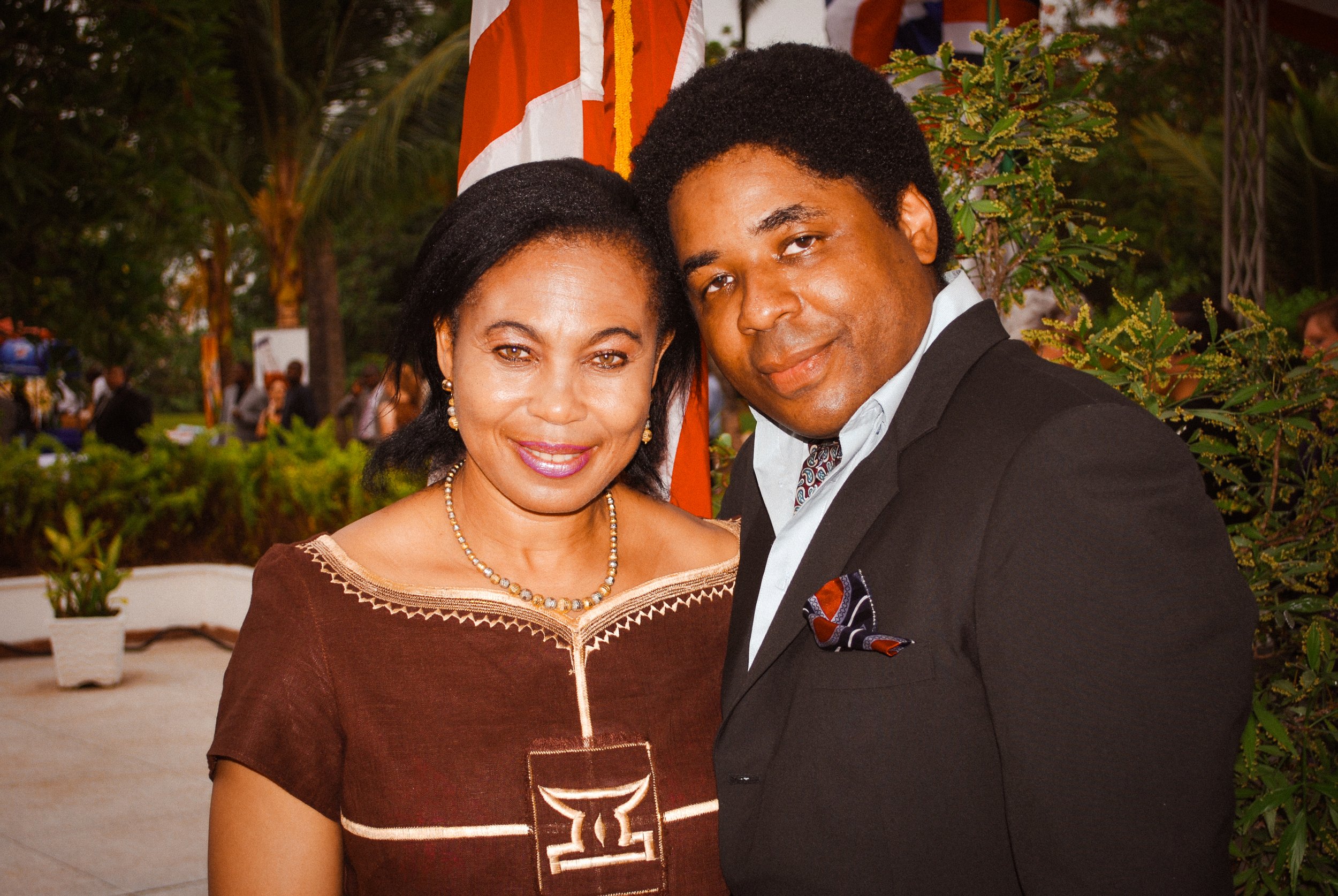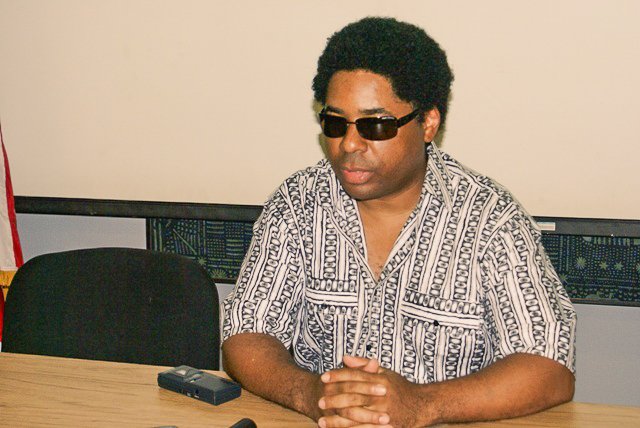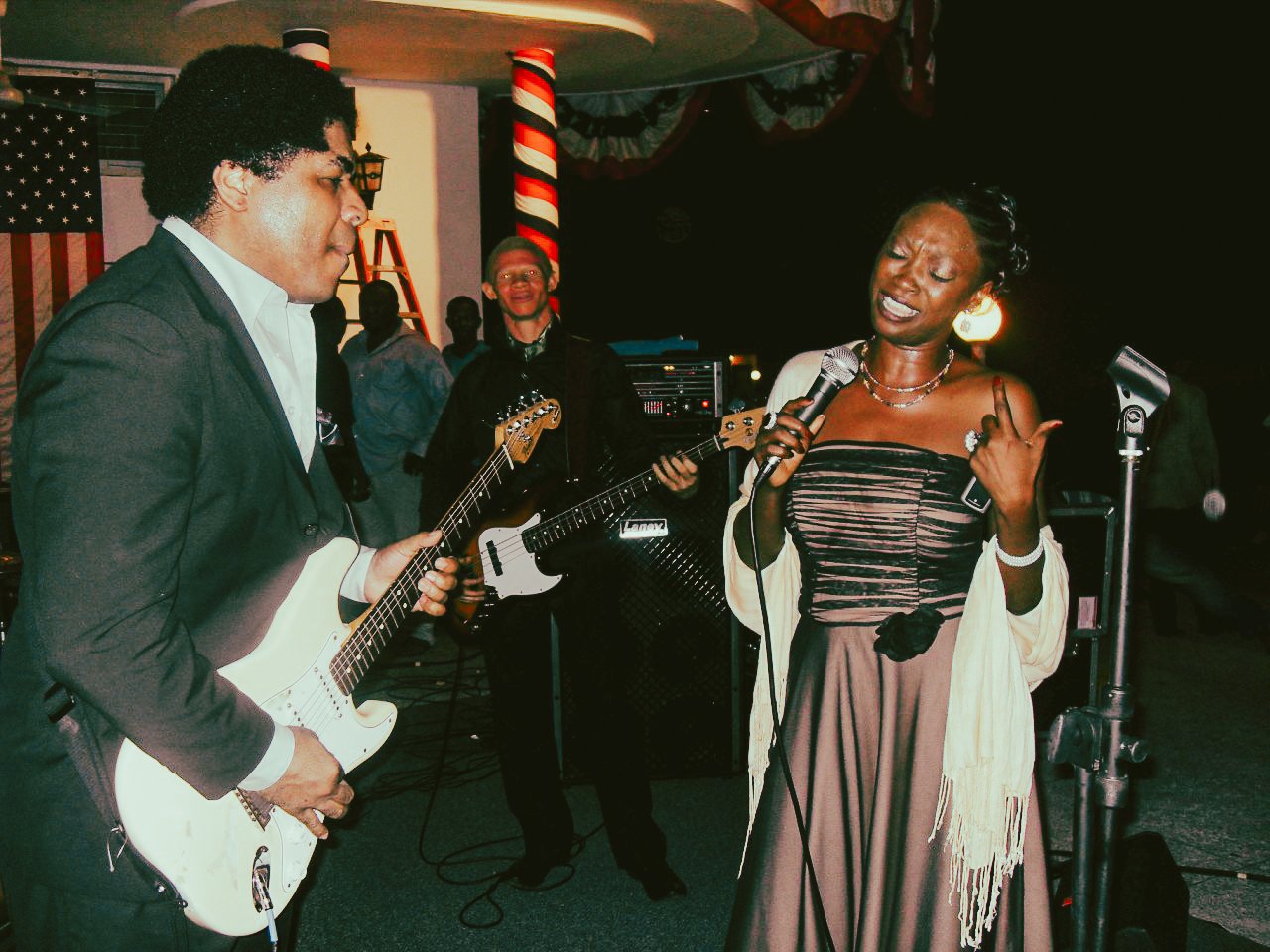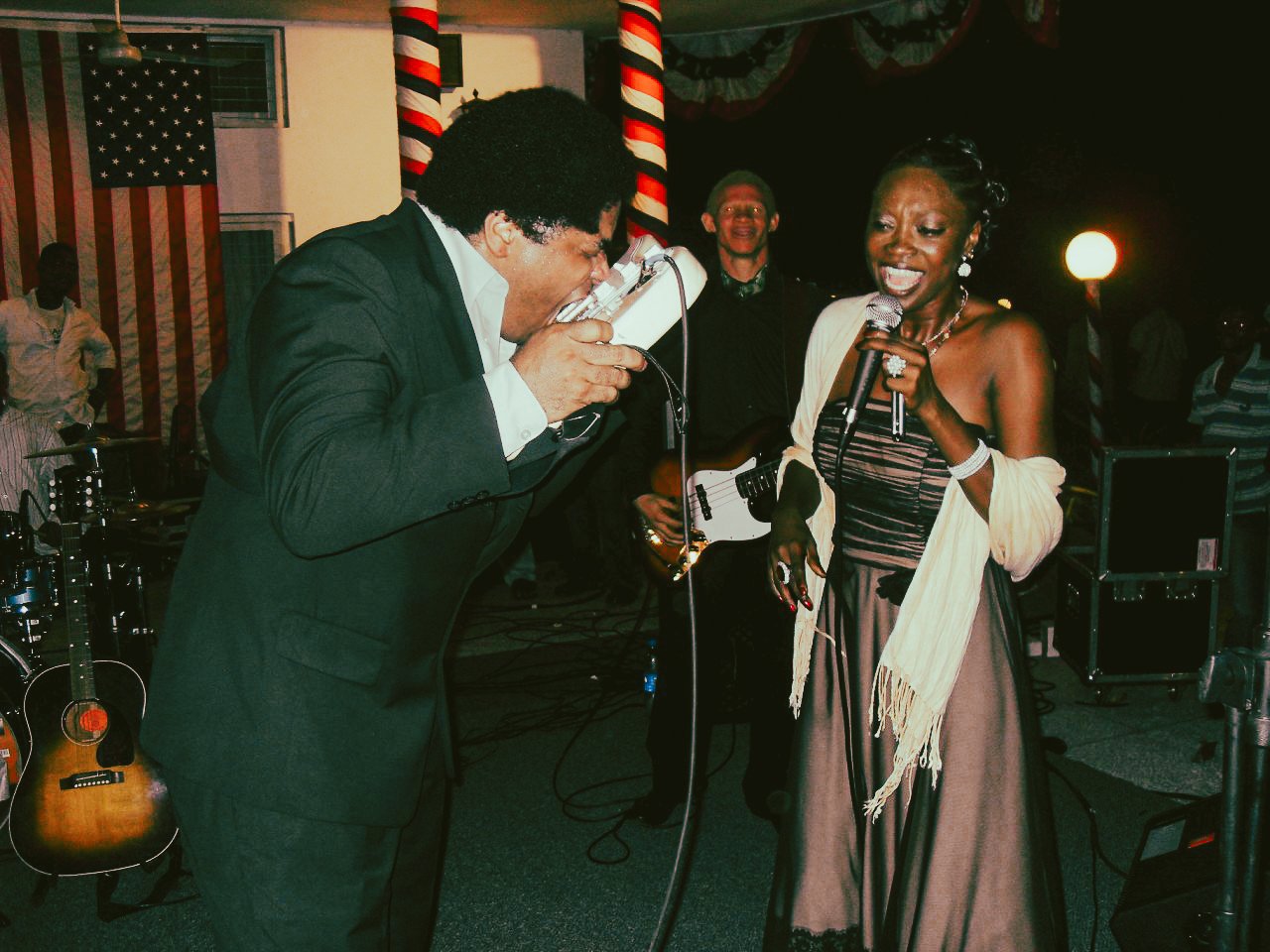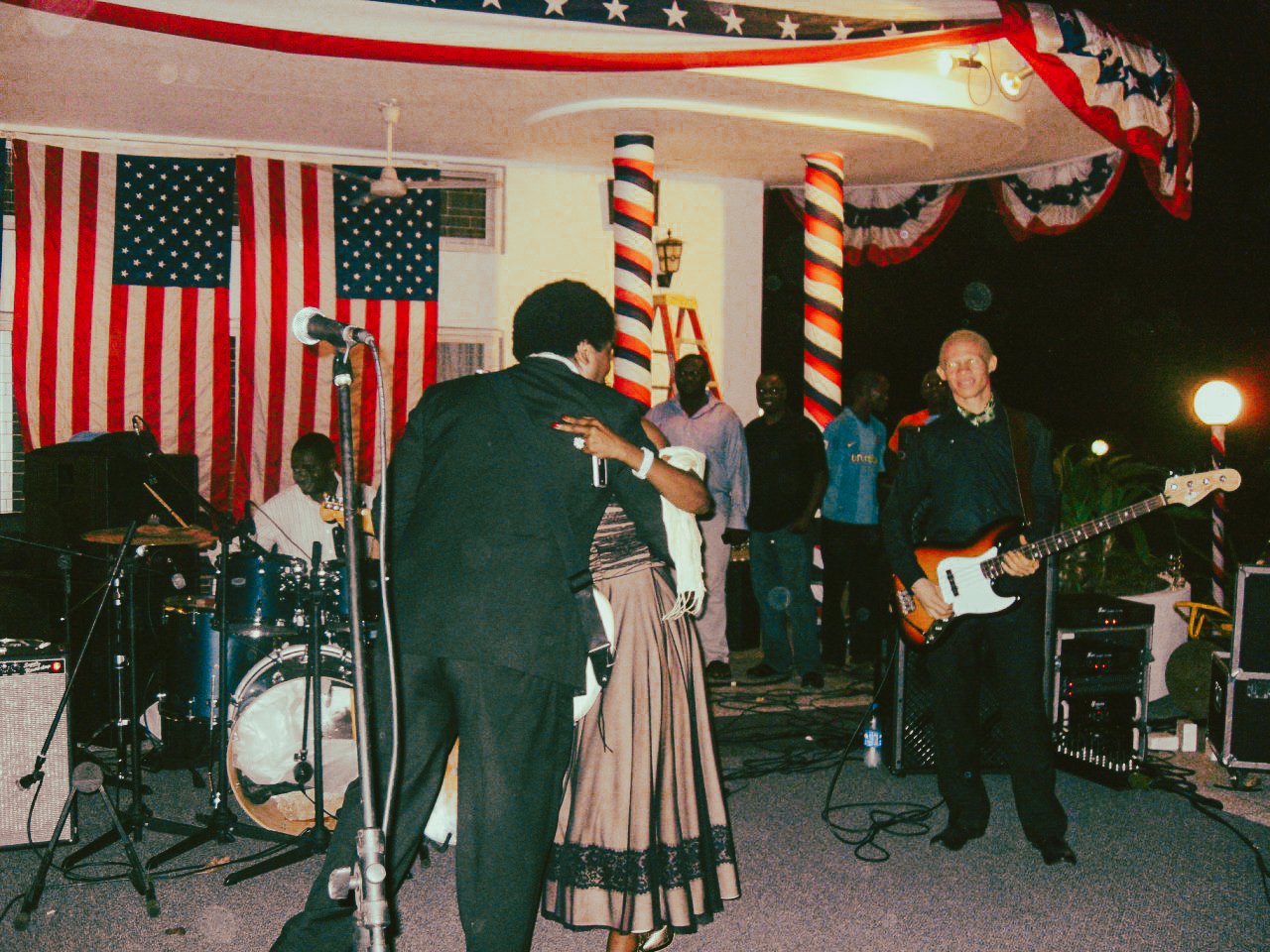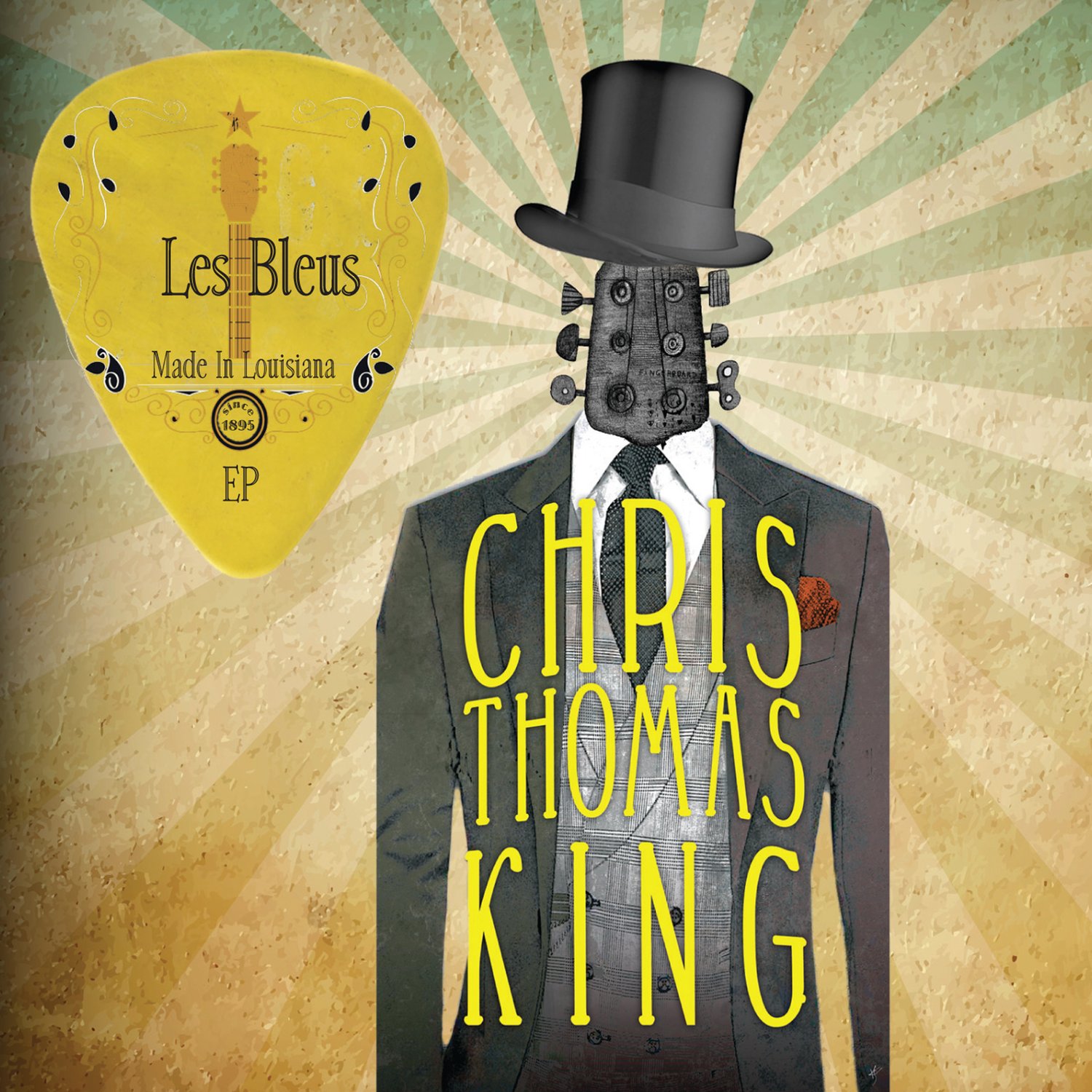
West africa
tour 2009
My West African Pilgrimage
In February 2009, I landed at the Abuja Airport of Nigeria, full of wonderment. I was so excited to have been invited to perform concerts with my band and host a few workshops in West Africa. I didn’t have a permanent lineup at the time, so I invited a rhythm section that worked the French Quarter circuit to accompany me; my longtime friend Darryl White and his bassist Johnathan “Cuju” Limjuco. I was excited about touring Africa.

We arrived at the Hilton Hotel in Abuja, Nigeria where we would reside the first week of the tour.
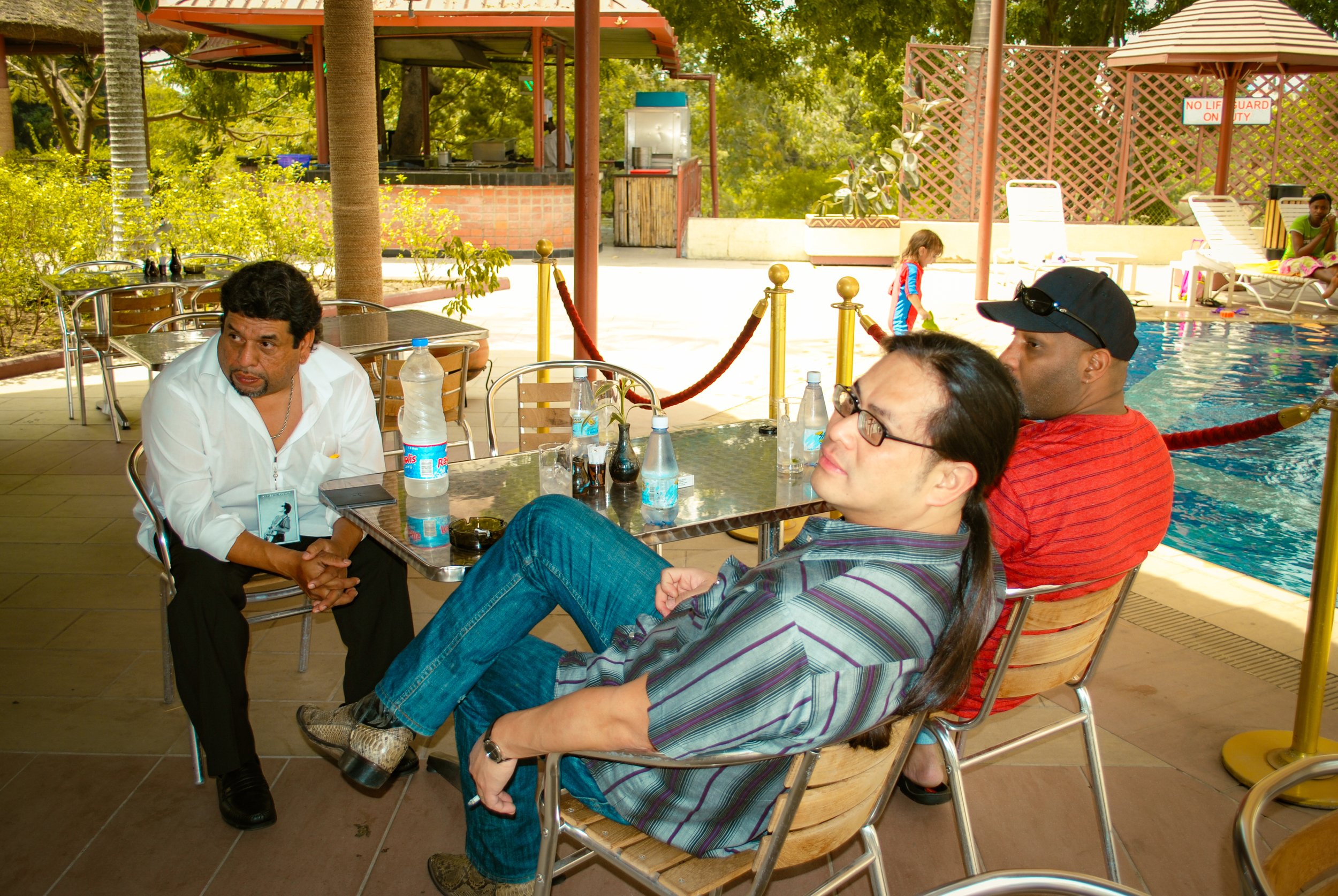
Road Manager David Arias, Cuju and Darryl relax by the hotel pool.

After being awake for what seemed light 48 hours had dinner at the home of one of our sponsors.

The next night we spent the evening at the home of the promotor. She was mainly responsible for booking us.
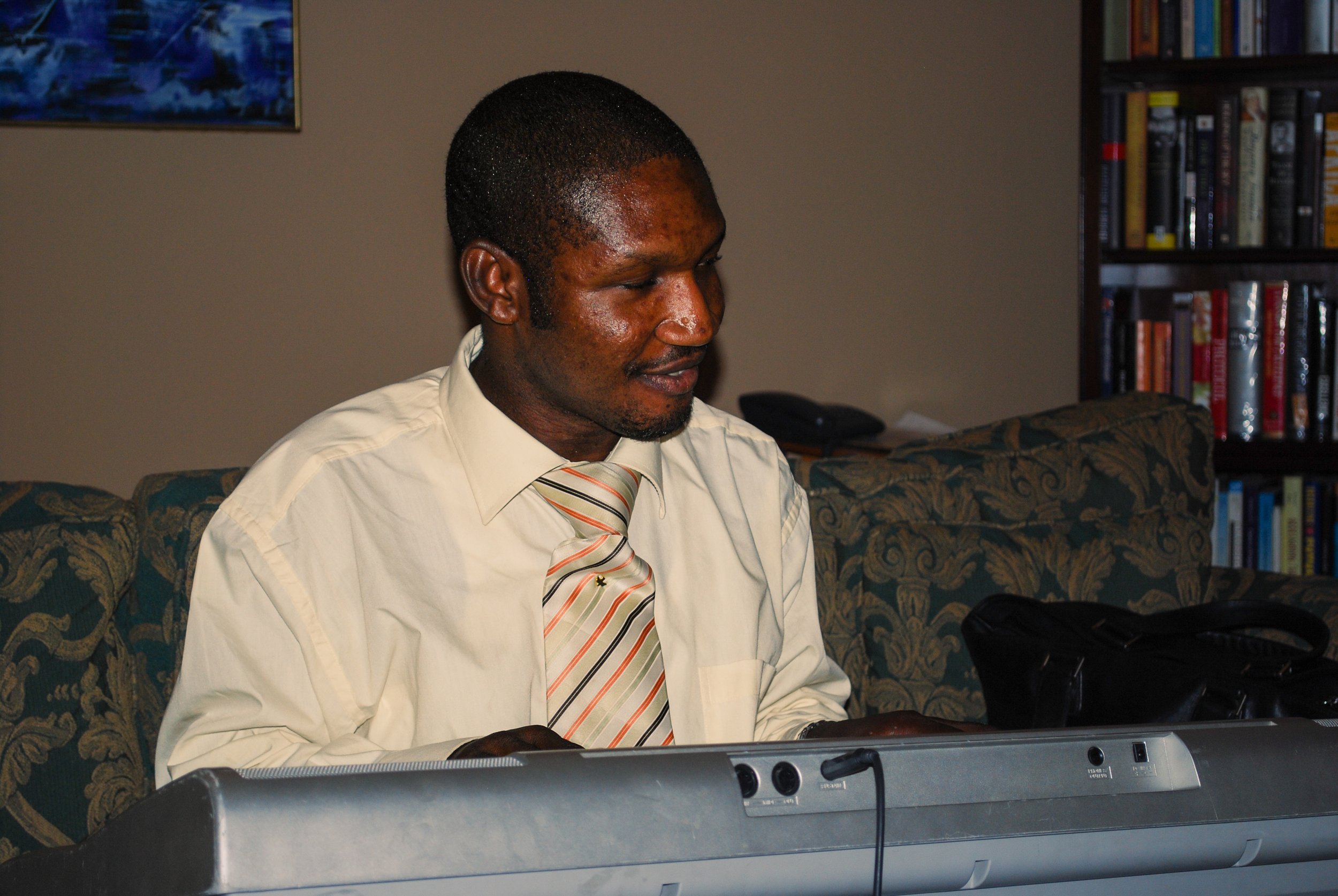
I met and jammed with a notable keyboardist who would accompany me at several performances.

I was in the moment.


Later that week I hosted a lecture and workshop at the University of Abuja.

In the green room tuning my guitar. Lots of wonderful art adorned the room.

I love West African art.


Darryl hanging with me in the green room.
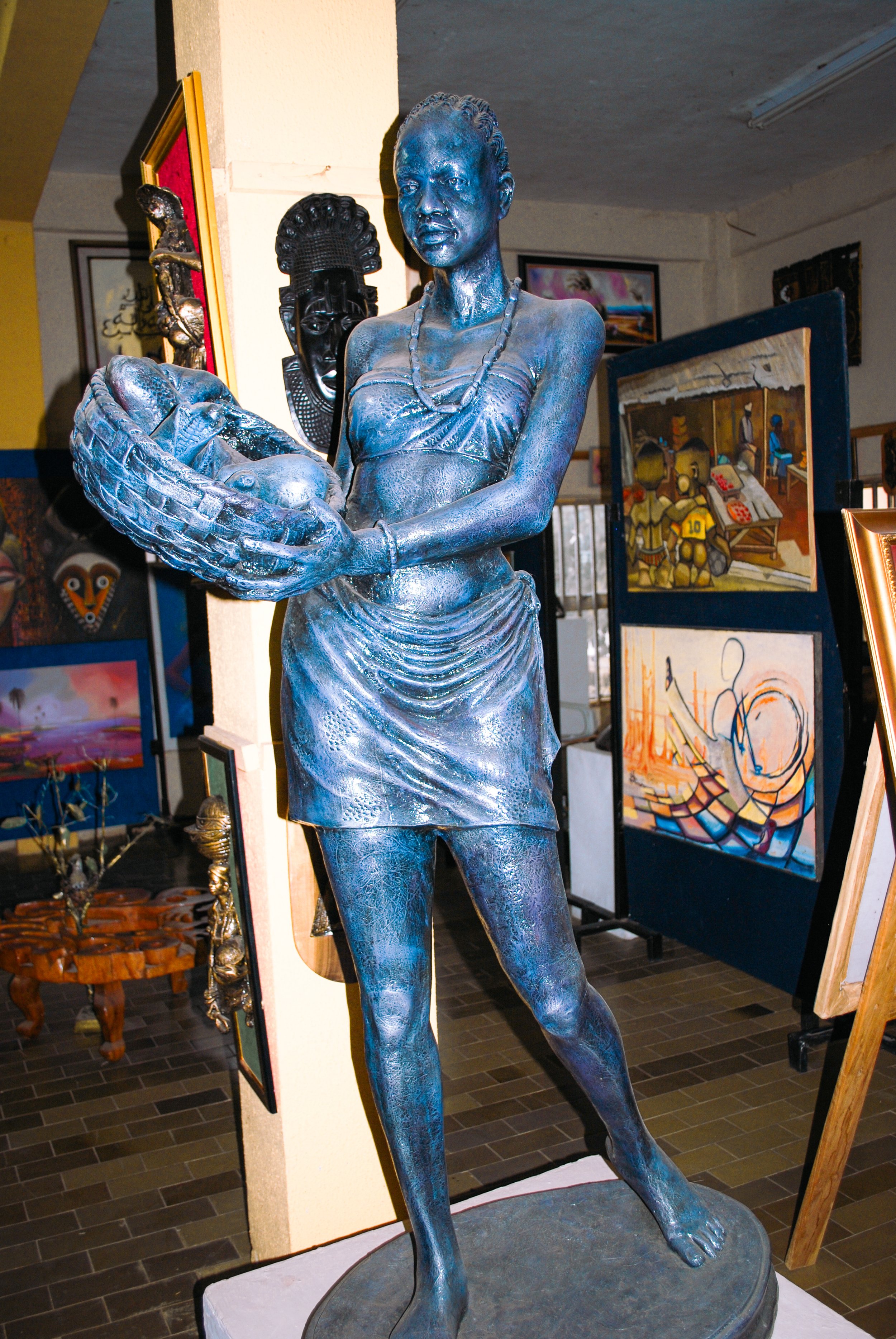
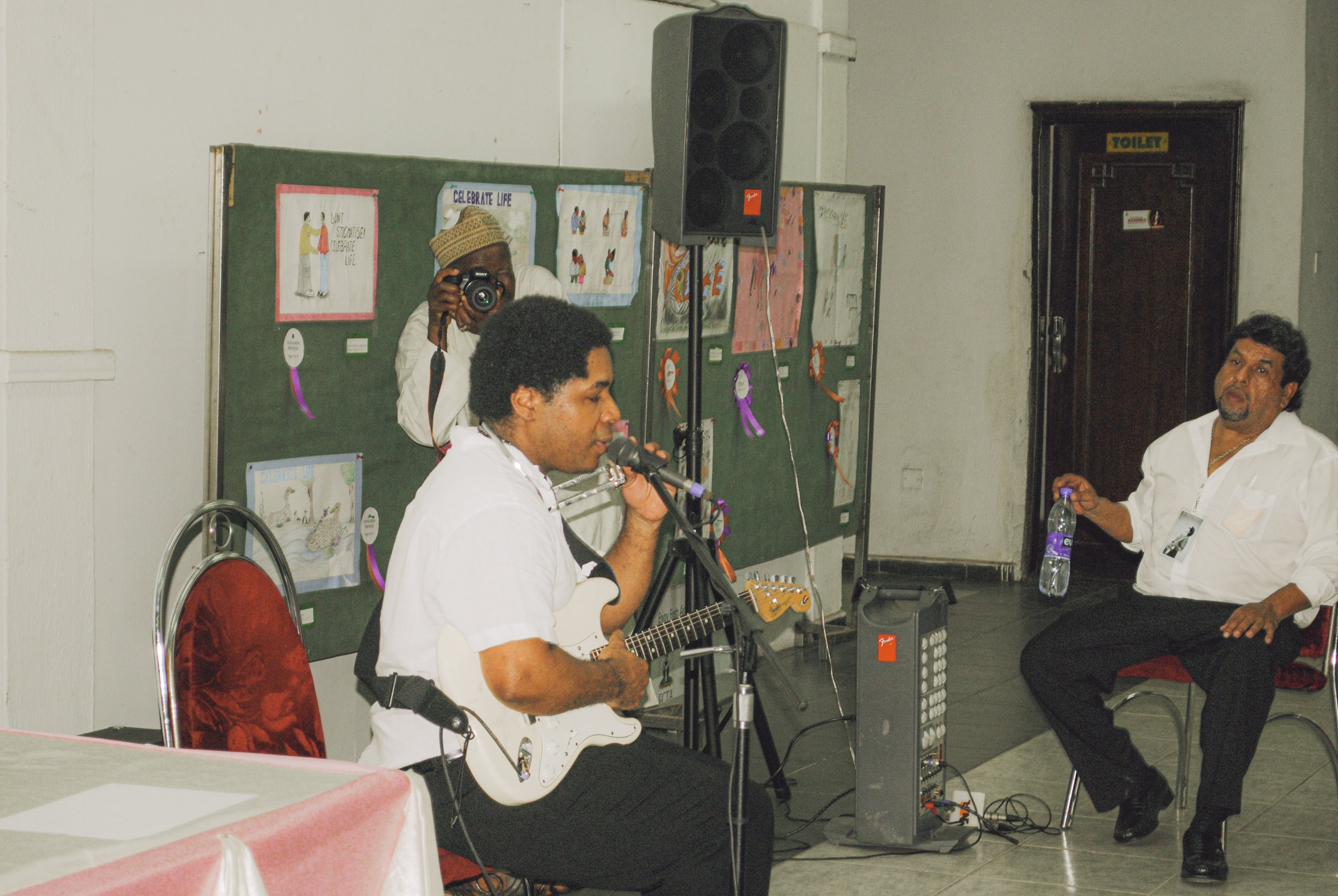
'I saw the trip as an opportunity to fill in some blanks regarding my musical roots because, after all, I had been told ad-nauseam, that the origins of the blues could be found in West Africa.' — Chris Thomas King, The Blues.

'Folklorists believed the blues to be a primitive expression from a primitive savage people. Therefore, they would go digging in the jungles of Africa seeking clues. Conversely, if one believes the blues is an enlightened expression, from a civilized people, one wouldn’t look in a jungle for clues—a place where you’d go to find wild animals—one would look for clues where civilization and high art is cultivated.' Chris Thomas King - The Blues


I share the story I thought they wanted to hear. The blues came from West Africa and developed in the Mississippi Delta. I sang songs by Robert Johnson and other Mississippi bluesmen.

But they didn't accept that origin story. They told me the blues that I played did not have West African origins.
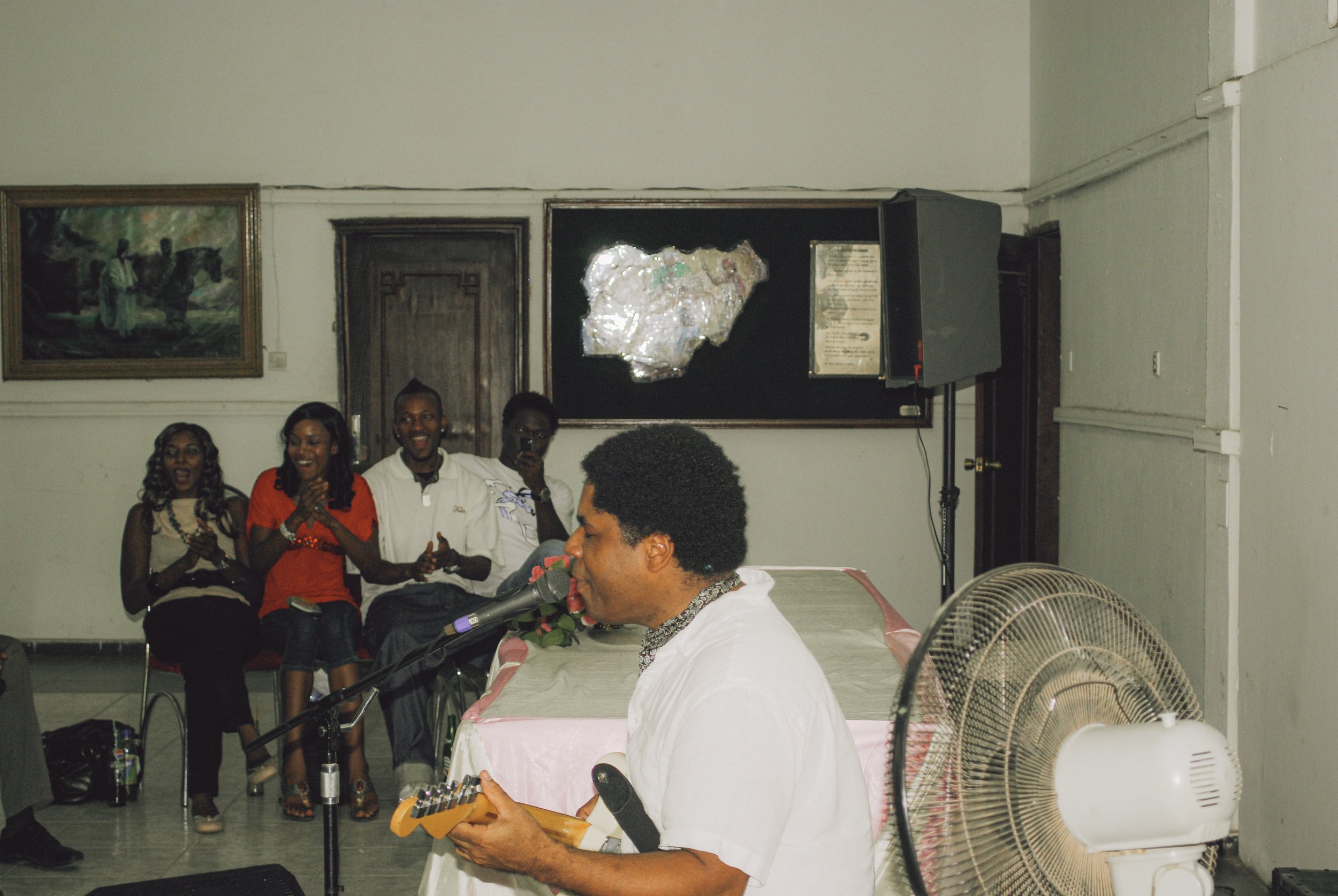
We had a question-and-answer session that proved to be quite revealing. I received the most intelligent questions from the gathering of scholars and musicians. For the first time, I heard and saw my music through an African prism.
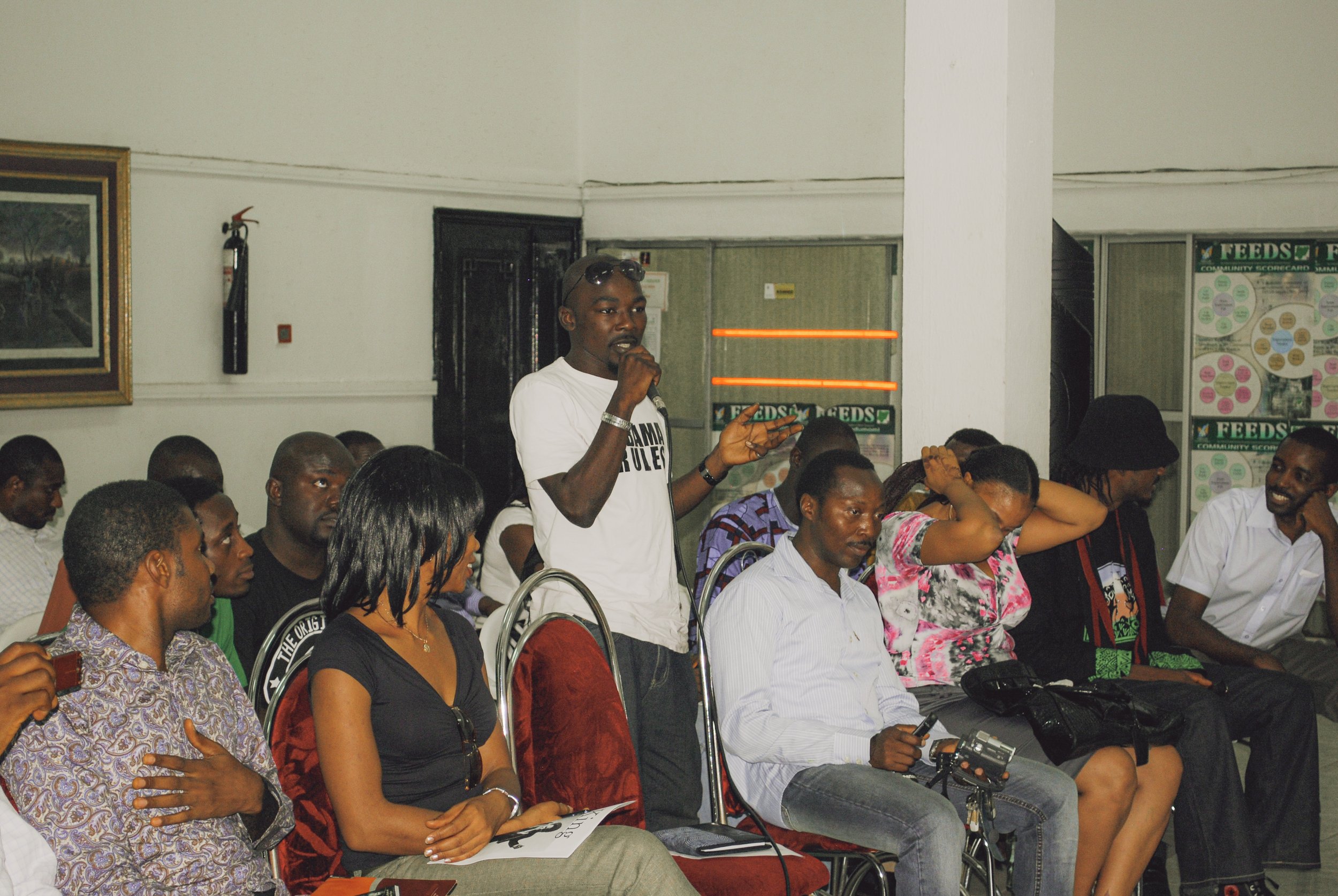
'One university student in the audience stood up and said to me, dismissively, “You’d starve to death in this country, performing THAT music.” Instantly, I knew, the gentleman was onto the Delta blues trope.' — Chris Thomas King - The Blues

'I had always doubted the Anglo narrative. It was reaffirming in that setting to have its absurdity illuminated.' — Chris Thomas King - The Blues

I knew then the manuscript I had been working on would need a major revision. After my stay in Africa, I spent the next few years researching to uncover the authentic origin of my music.
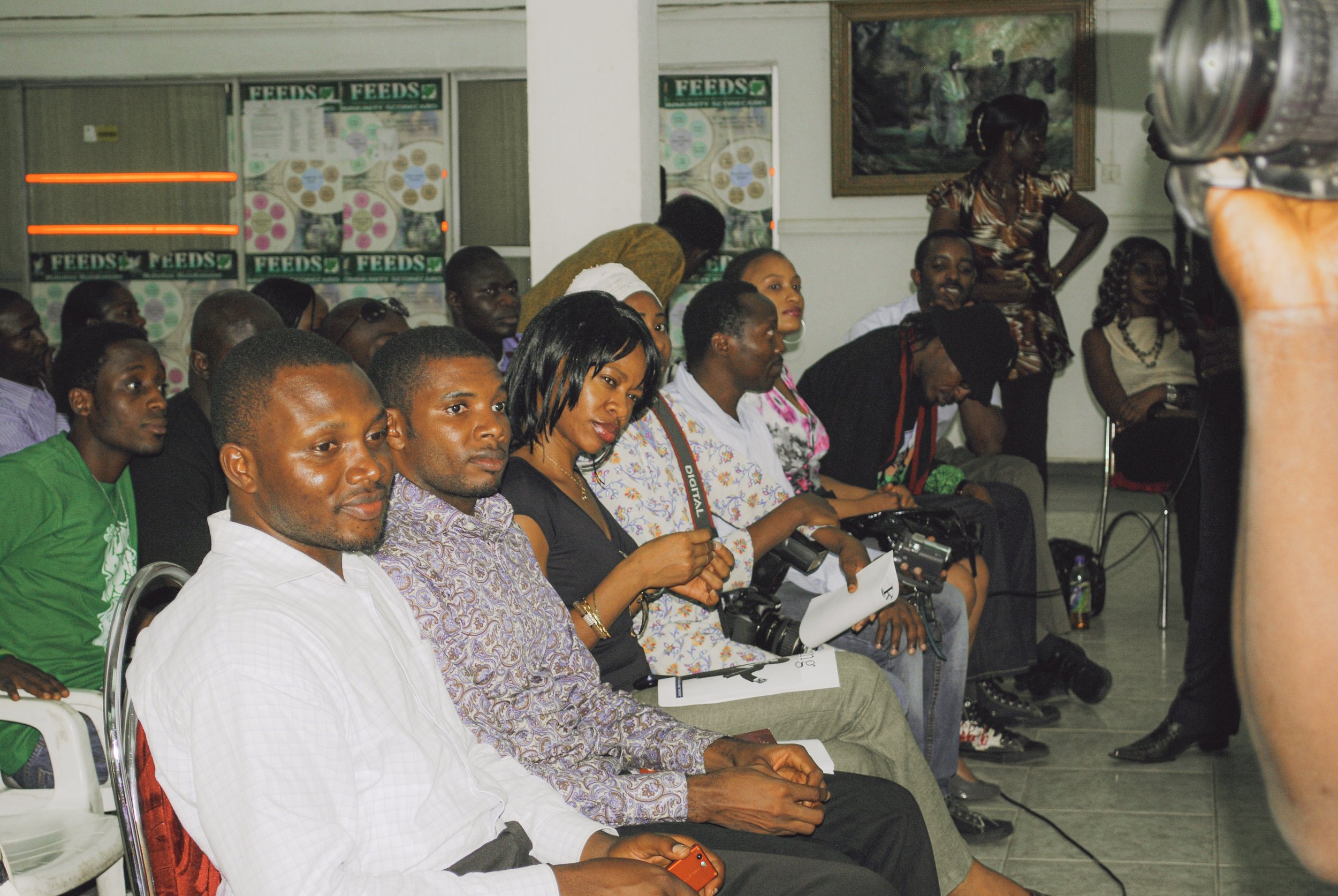
Funny, no one asked about my guitar tunings.


It was fun jamming with local musicians.
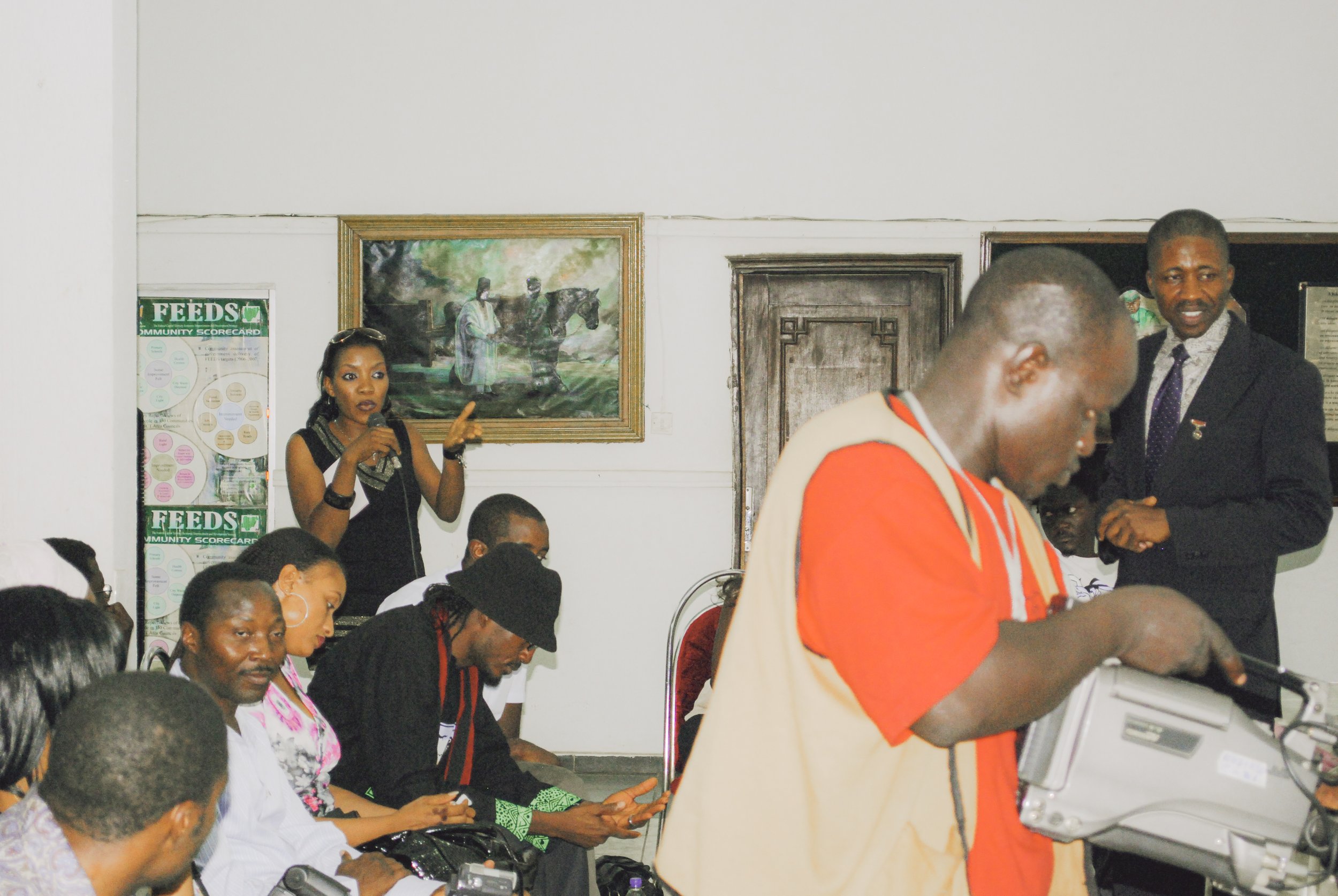
The national press followed where ever I traveled.
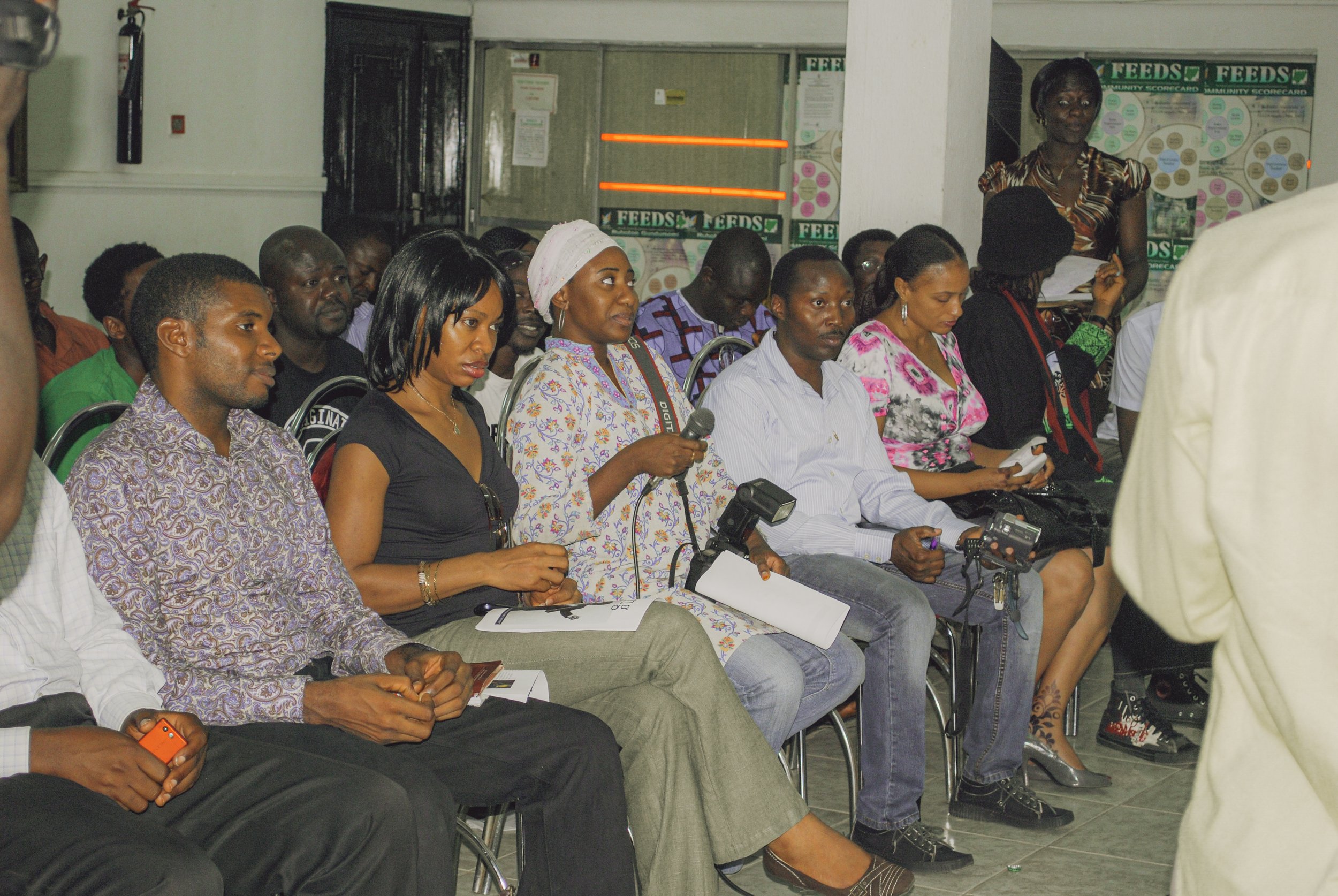
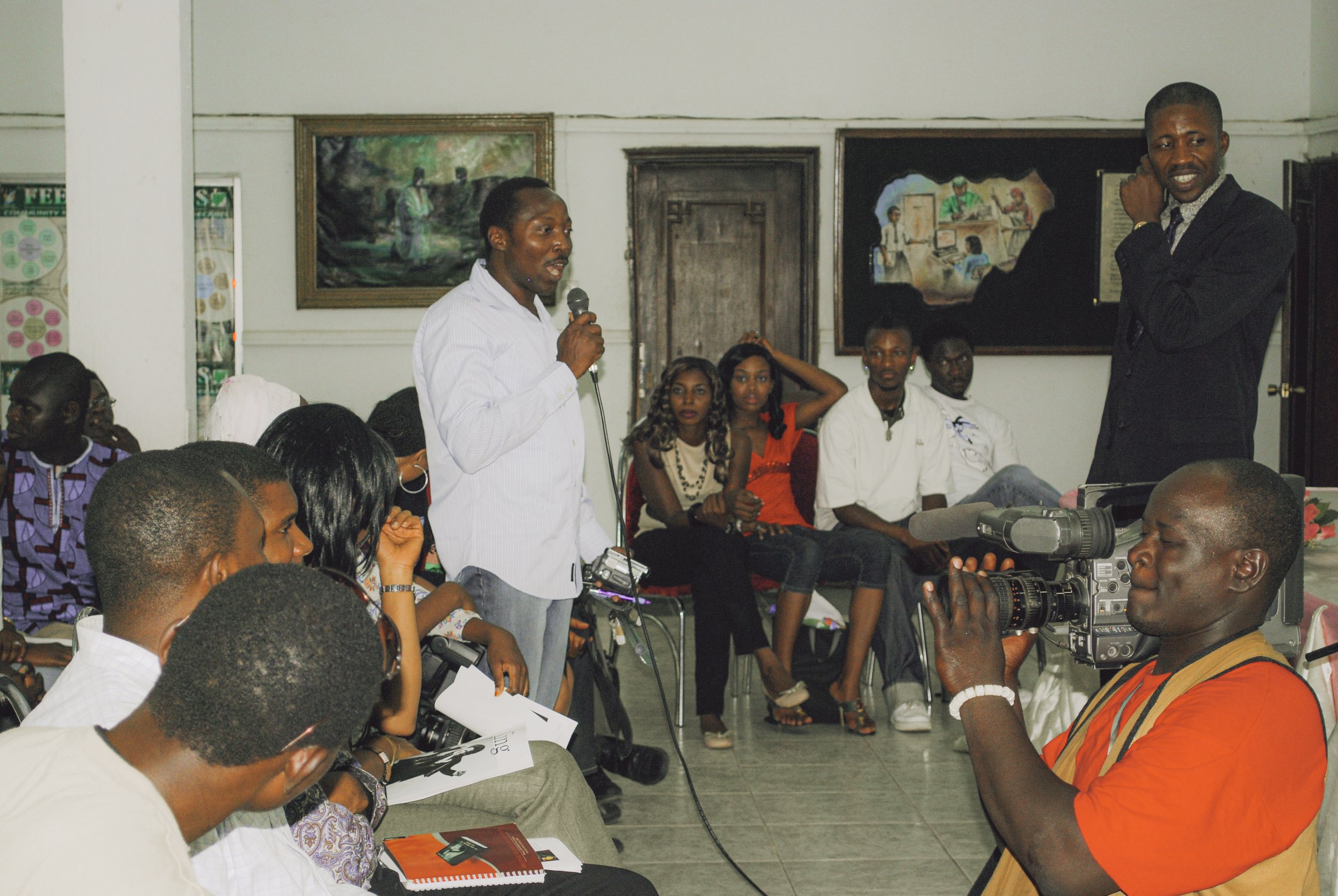
The debate about the blues was intense and spirited. I became a student. They were my teachers.

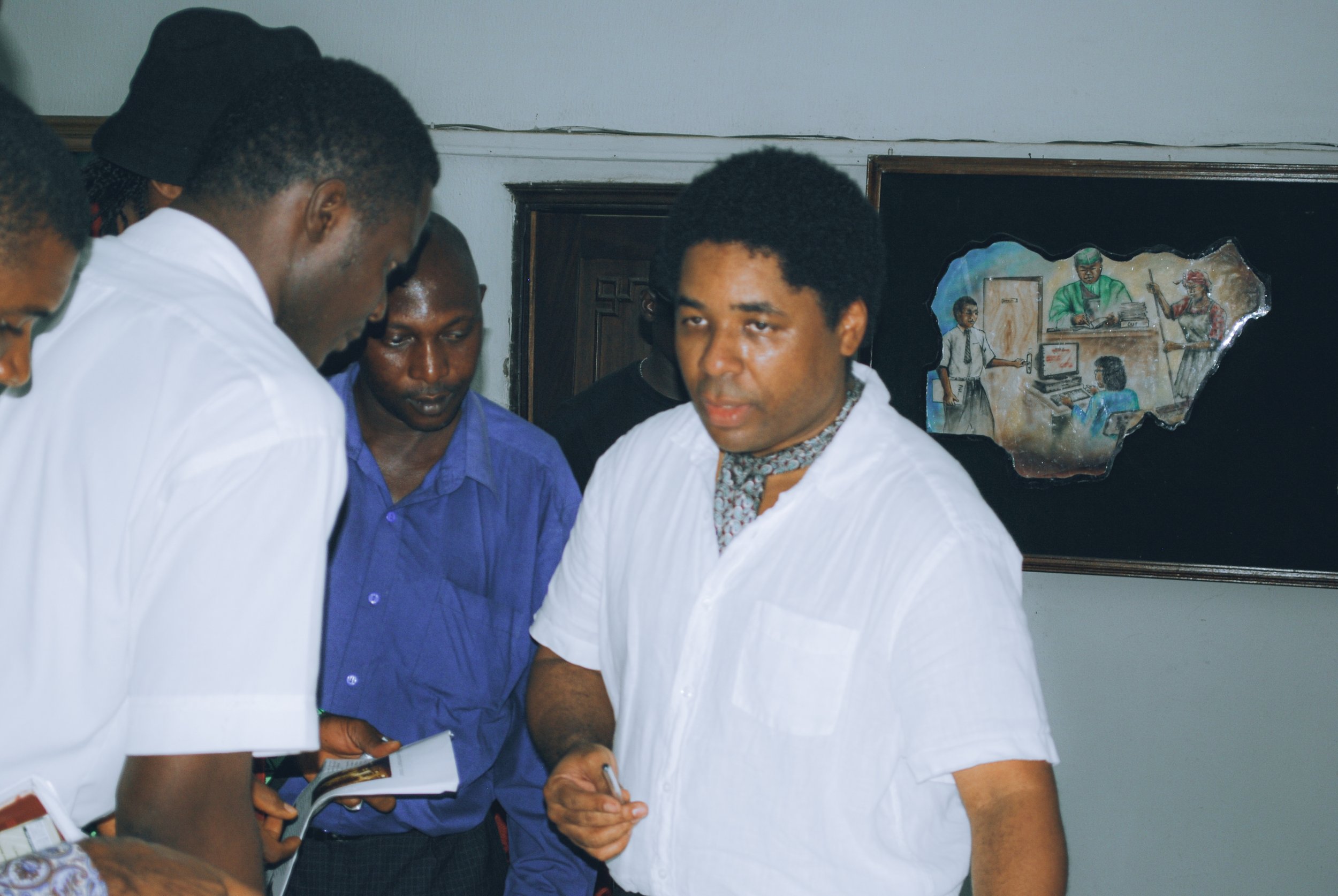
After I signed autographs. It would be another 9 or 10 years before I would be able to end lectures by signing my book.
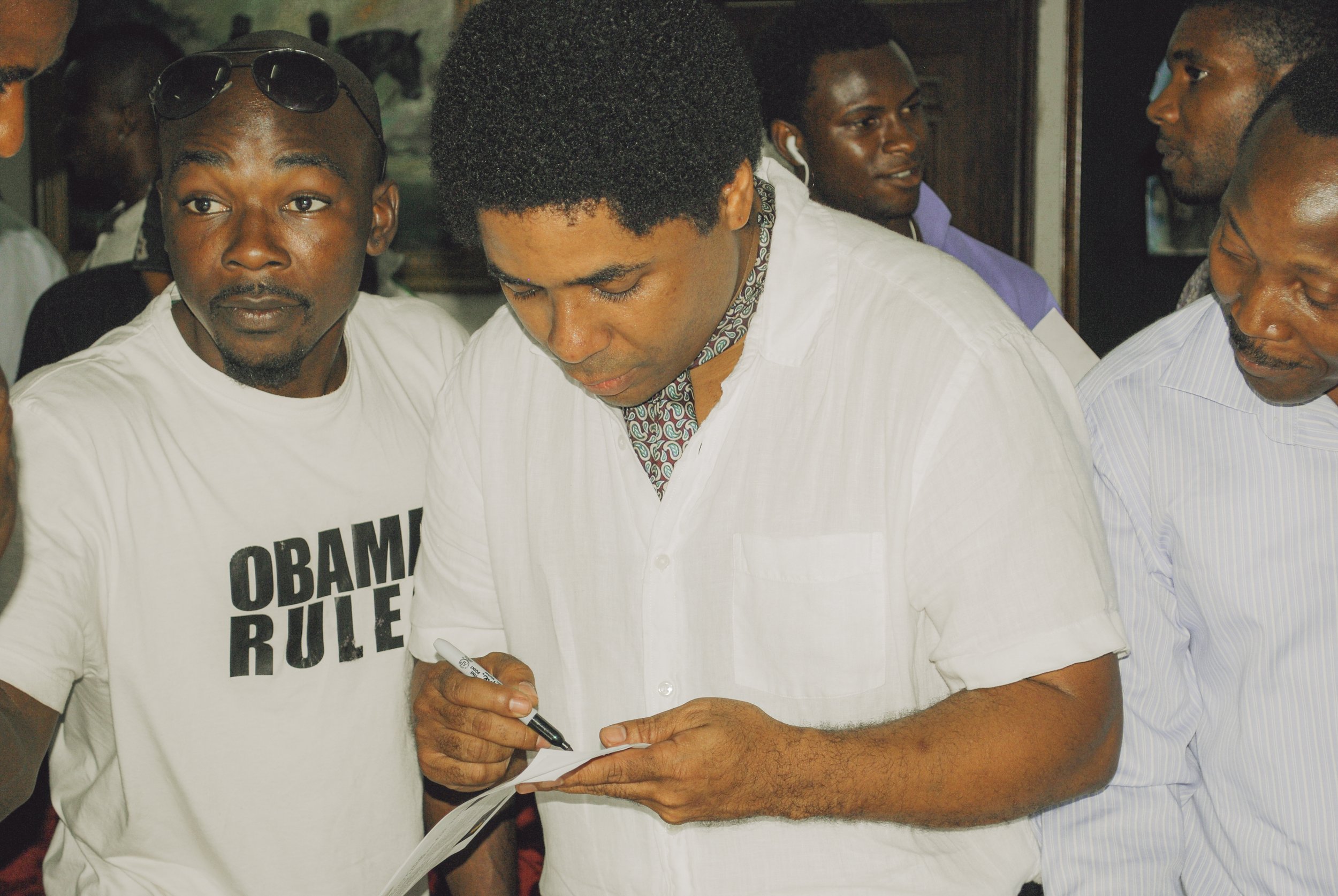
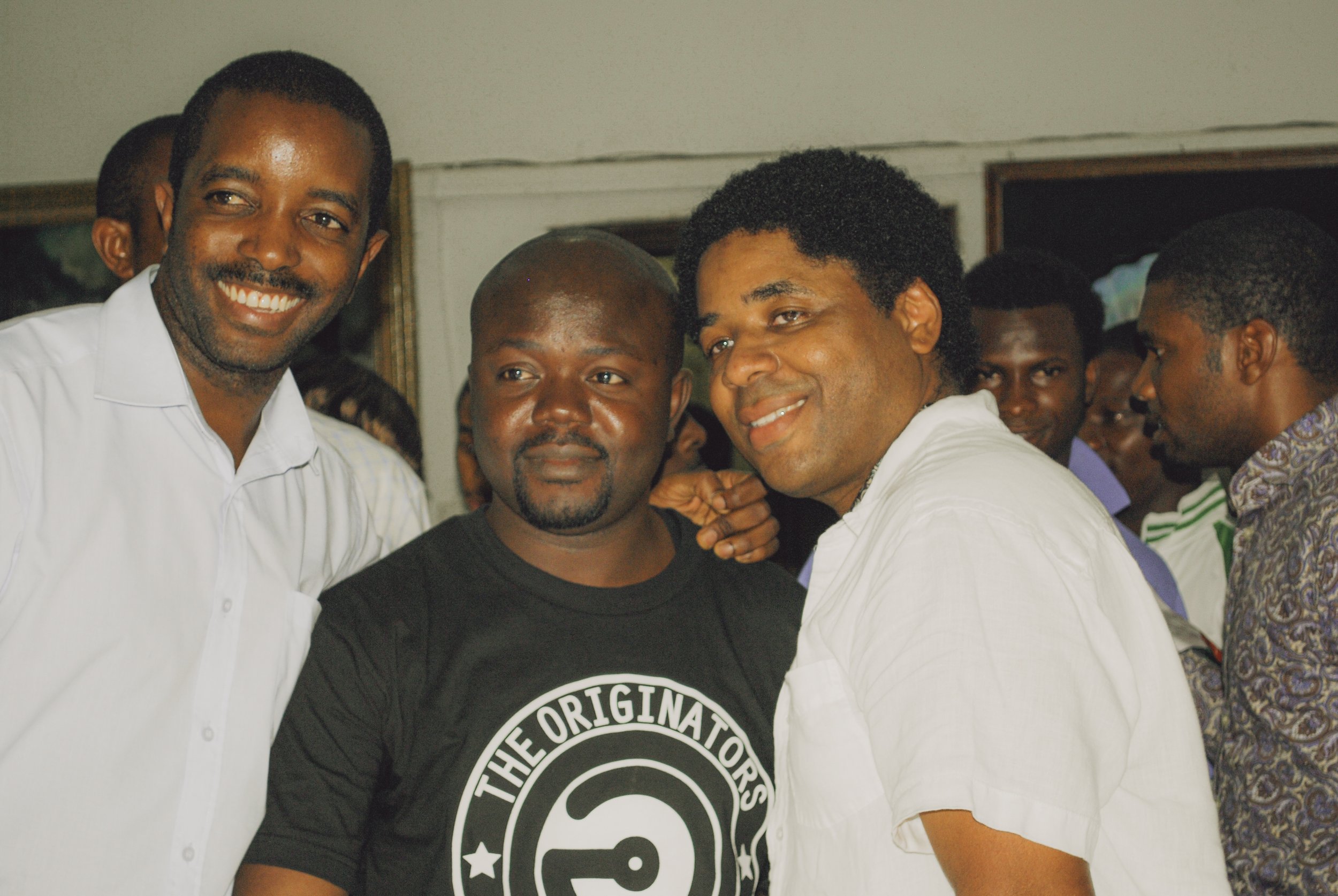
Abuja showed me much love.
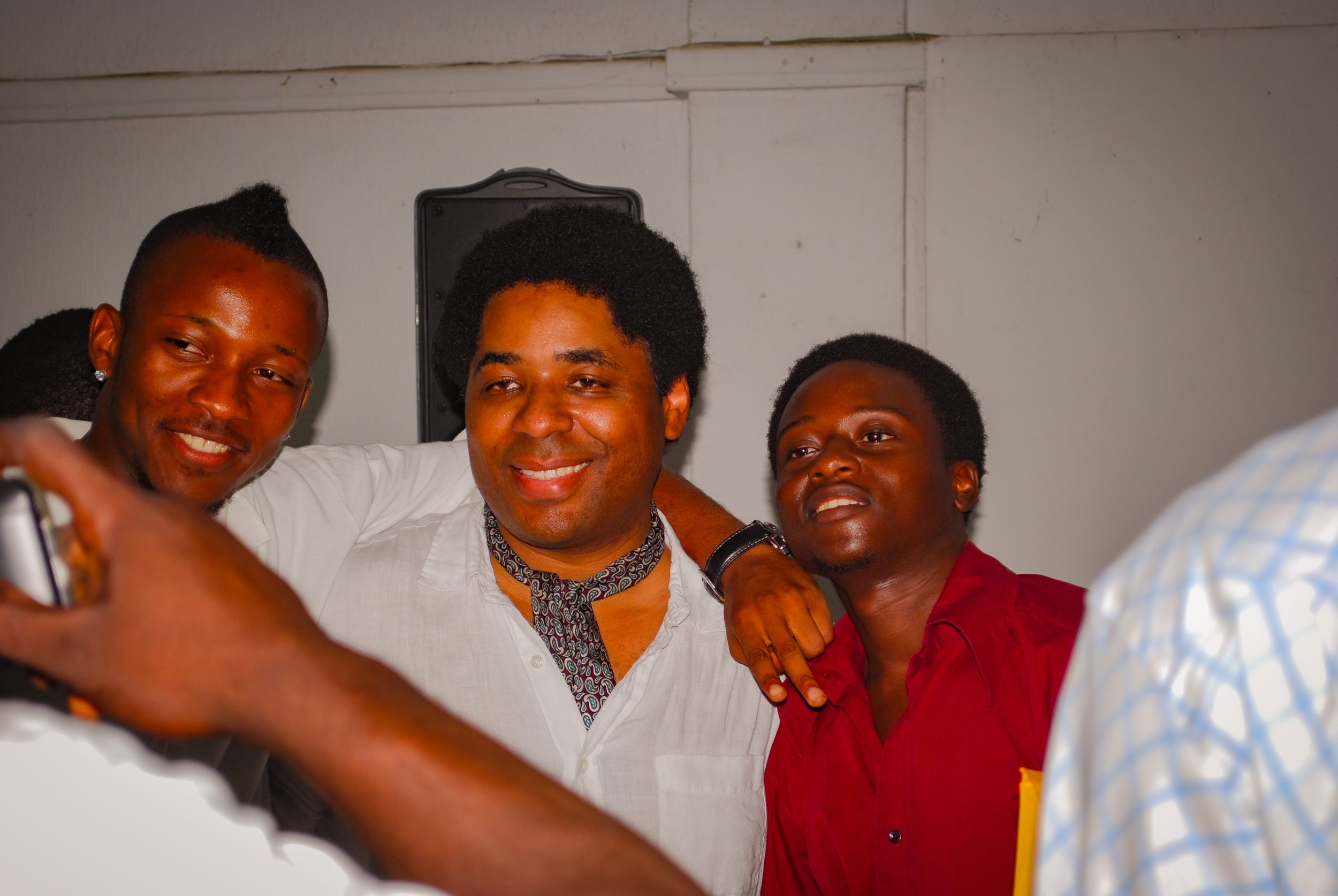
I loved them, too. My West African sojourn was inspiring and enlightening.

Meet the press.

The following week we flew to Lagos, Nigeria, home to more than twenty million people on the coast of the Atlantic Ocean.

A special welcoming party was set up for my arrival. We celebrated American National Day.

At the early reception before my concert, the crowd had cocktails. The food was from a first-class chef. Fresh and local.

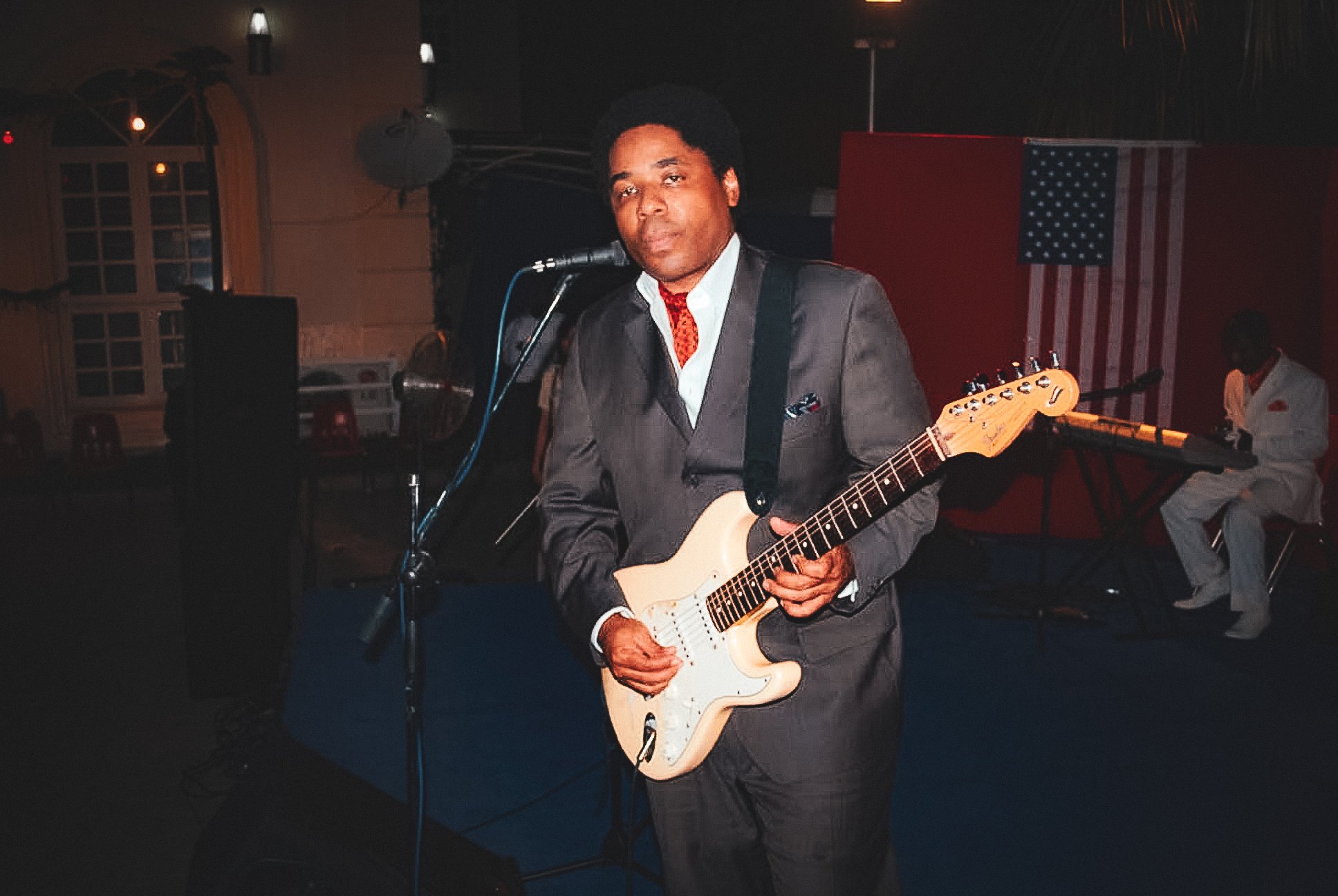

Outside a national radio station.

I sang songs and discussed my career live on the air.


Outside my hotel in Lagos, Nigeria.

I headlined a concert that included dignitaries.



I performed on my trusted Stratocaster and I also performed songs on the grand piano.



